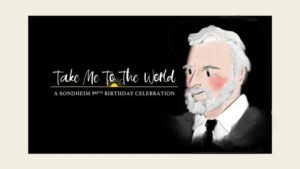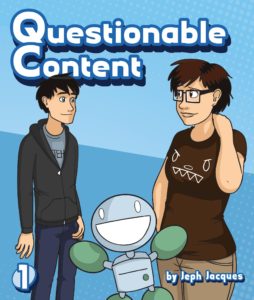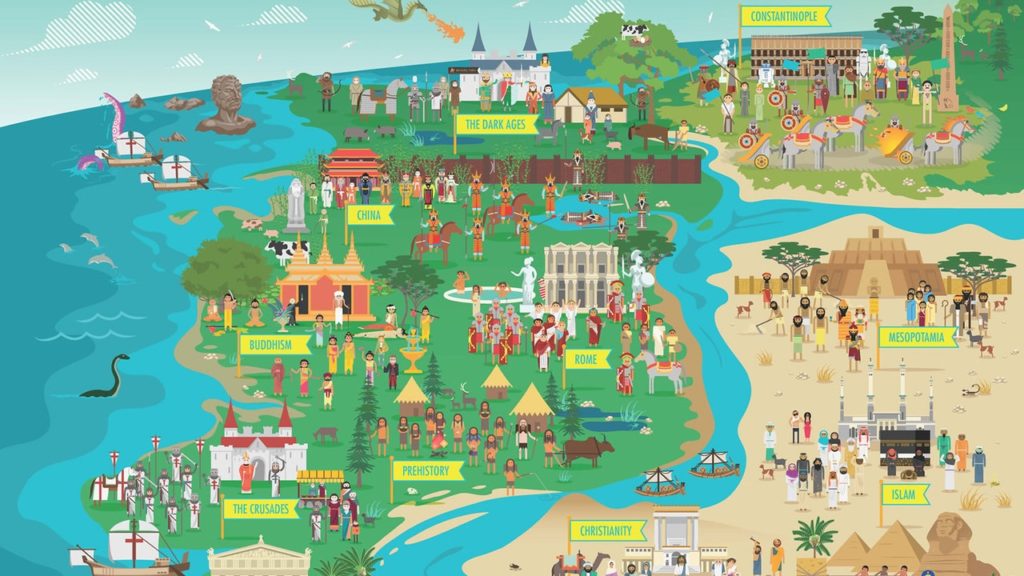Stay On It
by Julius Eastman
[Online Resource]
view/request
Composer Julius Eastman’s (1940 – 1990) music explores his identities as a gay man and Black American. Stay On It was composed in 1973 and combines minimalism with pop music. This new performance, which features musicains and dancers collaborating remotely, is dedicated to essential workers of color in the United States.
I found out about this performance through one of the many organizations involved in its production: The Dream Unfinished. The Dream Unfinished is an activist orchestra based out of New York which uses classical music as a platform to engage audiences in dialogues surrounding social and racial justice.
Reviewed by Ben
Tagged: Classical music, Music, Pop music, Racism

view/request
Board Game Arena advertises itself as “the world’s largest online board gaming community”. It is a community built and run online game platform with over 150 games, from classics like Hearts and Chess to more modern games like Sushi Go and Carcassonne. You can play with friends (playing with friends while on a simultaneous video chat is the closest I’ve come to a board game night during quarantine) or with strangers. On my own I’ve been playing lots of Race for the Galaxy, Hearts, and Seven Wonders. With friends we’ve played Sushi Go and Can’t Stop. It’s a good time. I recommend it for anyone who would like to play board games with friends during quarantine or anyone wants to satisfy a board game itch when an in person game isn’t possible.
Reviewed by Ben
Tagged: Board games, Game
Take Me to the World: A Sondheim 90th Birthday Celebration
by Broadway.com
[Online Resource]

view/request
This video celebration of Stephen Sondheim’s music and influence was entirely created during quarantine and includes performances by Bernadette Peters, Michael Cerversis, Josh Groban, Patti LuPone, Neil Patrick Harris, and many other extremely talented people. We have solo performances, duets, and even large ensembles (these last come across surprisingly well given the difficulties of making music as an ensemble during quarantine). We also here from a few non-singers—Steven Spielberg being the most memorable in my mind—but it is, of course, the music that makes this two-and-a-half hour long celebration worthwhile. The performances are entertaining and moving and heartfelt, and of course the craftsmanship that went into the music and lyrics is superb—it’s all by Sondheim.
Because the celebration is made up of many short clips recorded by different artists, it is easy to did in and out, enjoying the celebration slowly over time. And if you want to jump straight to a favorite artist or revist a favorite clip, just view the full description for a table of contests with links to the starting point for each clip. (Some highlights include 1:28:04 – Michael Cerveris – “Finishing the Hat”, 1:58:47 – Christine Baranski, Meryl Streep & Audra McDonald – “The Ladies Who Lunch”, and 2:11:46 – Bernadette Peters – “No One Is Alone”.)
Reviewed by Ben
Tagged: Music, Online Video
A Passion for the Planet
by Geoffrey Hudson
[Online Resource]

view/request
This live performance of Geoffrey Hudson A Passion for the Planet was recorded in Northampton, at Smith College’s Sweeney hall, and performed by the Illuminati Vocal Arts Ensemble with the Hampshire Young People’s Chorus and a 12-piece orchestra. A Passion for the Planet is an oratorio on the subject of climate change with words drawn from a number of sources. The work is moving and important, and the performance is exceptional. We can’t hear live music right now, but I am grateful to be able to experience this now, in my own home. And I take comfort in the words of Geoffrey Hudson, the composer, which seem applicable to so many of the crises we face:
Singing and listening to music won’t make the climate crisis go away. But perhaps, by forming an emotional connection with the topic, it can help us confront the stark realities. And when we see those realities—and truly take them in—maybe then, together, nourished by hope, we can work together to find a way forward.” – Geoffrey Hudson
Reviewed by Ben
Tagged: Classical music, Music, Online Video

view/request
On March 21, 2020, Sandi Toksvig posted a video on a new YouTube, Vox Tox. It opens with the calming sound of a slow piano rag and a view of Sandi Toksvig in a rocking chair, a book in her lap, a dog at her feet, a fireplace to her side, and bookcases full of books behind. The camera pans over some of Sandi’s books before cutting back to Sandi, who looks into the camera and begins, “Hello there. Come have a sit down.” She continues:
You know we’re in strange times and I do know that there are some people are feeling a tad isolated, so I thought we could just have a bit of a chat. When I’m at home, I’ll be honest with you, I’m quite quiet, and a bit private, but I would like to invite you into my favorite room in our house: it’s one, as you can see, with all the books. When things are taking a bit of a low turn, which they do for everybody at some point, this is the place I come to find a bit of calm. I think we all need to find the positive in this enforced separation from the world and the bit I’m finding is how lovely to have the time to dip in and out of some ancient volume I haven’t looked at for ages. I struggled a great deal with loneliness when I was a child and it was always books which kept me company.
Vox Tox is “a daily amble through the library of Sandi Toksvig”. It’s also a wonderful amble through the mind of Sandi Toksvig, whose interests are wide ranging. The bulk of each episode, which is just under ten minutes long, consist of various historical stories with an emphasis on the stories of women, and no fear of digression. Sandi’s style is wonderfully conversational, and her manner wonderfully calming, like a Mr. Rodgers for gown ups. There has been a new Vox Tox each day, and I highly recommend subscribing to the channel.
Reviewed by Ben
Tagged: England, History, Online Video
Ian’s Shoelace Site
by Ian Fieggen
[Online Resource]

view/request
Sometimes its nice to dive into a seemingly trivial subject and learn what there is to learn. Shoelaces for example. We tie and untie them everyday, but what do we know about them? For most folks, the answer is not much. What is there to know about them? A fair amount, it turns out, and Ian Fieggen has provide a website (Ian’s Shoelace Site) that answers the questions you didn’t think to ask. The deepest and richest sections are, without a doubt, the sections on shoelace tying and shoe lacing. You can learn sixty-two different ways to lace shoes and the comparative advantages and disadvantages of each. And you can learn twenty different ways to tie your laces. Fieggen’s instructions are clear and the amount of detailed information he includes for each method is impressive. This is definitely the site to go to if you have a question about shoe laces, but it also highly recommended for anyone who likes to learn about the little things around us.
Reviewed by Ben
Online Etymology Dictionary
by Douglas Harper
[Online Resource]

view/request
Dan Harper’s Online Etymology Dictionary is one of those reference sources that is both useful and a pleasure to use. It’s primary content is, of course, dictionary entries for English words with a focus on their history. For example we will learn that the word “pet” is of unknown origin and meant “a tamed animal” until about the 16th century when it gained the meanings “animal kept as a favorite” and “indulged child”. By the 1620s it was in use as a verb meaning “to treat as a pet”, but it didn’t gain its meaning of “to stroke” until 1818! The entries in Harper’s dictionary are concise and thoughtful. Sources are rarely given, which limits its use for scholarship, but the brevity achieved makes in perfect for quick reference and pleasure reading.
In addition to the dictionary entries, the website also includes articles on various related topics, most recently Language in a Time of Corona, which digresses on themes suggested by the history of the various words in common use, including: “crisis” (which curiously evolved from a word meaning “sieve”), “epidemic” (a noun with an adjective’s ending), “virus” (a word that predates it’s current meaning by many centuries), “quarantine” (which originally referred to policy of isolating a ship for forty days), and many others.
Reviewed by Ben
No Such Thing as a Fish
by James Harkin, Andrew Hunter Murray, Anna Ptaszynski and Dan Schreiber,
[Online Resource]

view/request
Way back in 2003 Stephen Fry began hosting the delightful comedy trivia quiz show QI. The most visible stars of that show were the host, Stephen Fry, and the many witty panelists who joined him each week. But the hidden stars of the show were the researches who provided Stephen with a seemingly endless supply of “quite interesting” things to talk about. Those researchers quickly became know as the QI Elves, and since 2014 four of them, James Harkin, Andrew Hunter Murray, Anna Ptaszynski and Dan Schreiber, have hosted a weekly podcast crammed full of quite interesting facts, speculations, and banter.
No Such Thing as a Fish is wonderfully entertaining. Each of the four hosts picks a favorite fact of the week, which might sound like a recipe for a rather short podcast, but each host also comes prepared with a list of their favorite facts on the topic of their cohost’s facts. That would make for a minimum of 12 facts, and most episodes have far more. A recent episode included information on ancient Roman toilets, paint colors in Pompeii, flag burning, the origin of the word the word “prat”, and what we do and do not know about human intestinal length. All the while we are treated to jokes and puns and humorous anecdotes.
Most episodes of Fish are between 40 minutes and an hour long, and the episodes can be enjoyed in any order. Some listeners may want to seek out the episodes with special guests such as Stephen Fry, Cariad Lloyd, and John Hodgman. (The latter is, I must say, perfectly suited for the show.)
Reviewed by Ben
Tagged: Comedy, Podcast, Trivia
Gastropod
by Cynthia Graber and Nicola Twilley
[Online Resource]

view/request
Cynthia Graber and Nicola Twilley host a delightful podcast that explores food through the lens of science and history. They explore the origins of foods (who really did invent the French Fry?), the biology of foods (what causes the differences between different sourdoughs?), the psychology of food (how do menus affect what we order?), the ecology of food (how can our food choices affect invasive species or the climate?). They explore unusual foods (the pawpaw, kelp, and kombucha) and common foods (butter, bread, salt, and beer) and everything in between. Most episodes are about 40 minutes long.
All the episodes are great, but my favorites include:
Reviewed by Ben
Tagged: Cooking, Food, History, Podcast

view/request
LibriVox is a free source of public domain audiobooks read by volunteers from around the world. Most of the books are in English, but other languages are available as well with many titles in French and German and a not insignificant number of recordings in Ancient Greek. Titles for children and adults are available. I recommend starting with the Adventures of Sherlock Holmes and Alice’s Adventures in Wonderland, both of which are available in variety of version by different readers.
Reviewed by Ben
Questionable Content
by Jeph Jacques
[Online Resource]

view/request
Questionable Content is a long running, slice-of-life, web comic focusing on a large cast of humans and robots living in a small college town which resembles Northampton to an extent that cannot be ignored. (Scenes are occasionally set at the Smif College library, and a number of characters have been Smif College students or employees. And there are a lot of scenes set in coffee shops and bars.)
The comic includes sci-fi elements, as evidenced by the many artificial intelligences amongst the cast, but the plot is driven by the interpersonal relationships and struggles you would expect in a college town. Dedicated readers return to the comic again and again to follow the evolving story of favorite characters such as Marten, Faye, Dora, and Hannelore and their struggles which include workplace romances, anxiety, addiction, sexual identity, poverty, social awkwardness, and difficult family dynamics.
Despite these weighty topics the tone is generally light. The humor can be crass (Jeff Jacques has a fondness for jokes about sex toys and farts), but is never unkind.
Given the evolution of the strip, I can’t recommend you start at the beginning unless you feel absolutely compelled to do so. New reader’s might instead start with Number 1719 in which Hanelore begins working at Coffee of Doom or Number 2201 just before the introduction of the new library interns Emily, Claire, and Gabby. There are currently well over 4000 comics, so that still leaves plenty to read, and dedicated fans of the comic can always backtrack to explore the comics roots.
Reviewed by Ben
Tagged: Comics, Humor, Northampton
Crash Course World History
by John Green
[Online Resource]

view/request
Library users may know John Green best as the author of such popular books as The Fault in Our Stars and An Abundance of Katherines, but he is also a prolific YouTube content creator. His Crash Course series is, so I’m told, aimed at teens, but is loved by adults as well. I am particularly fond of Crash Course History.
Crash Course History was the first series in the Crash Course brand and every episode consists of a short presentation by Green enhanced with clever animations. Green’s style is conversational and engaging. He treats us to occasional tangents and jokes, but the content remains focused and extremely informative, and he doesn’t shy away from difficult topics like imperialism, fascism, and slavery.
Each episode is just over ten minutes long. The length is appropriate for an easily digestible summary that leaves you curious and interested to learn more about a topic. Episodes include The Agricultural Revolution, The Silk Road and Ancient Trade, Mansa Musa and Islam in Africa, and The Columbian Exchange and 38 other topics from ancient through modern times.
Other series in Crash Course brand include, among others, English Literature, Philosophy, Economics, and U.S. History, and more are being planned. You can find them all at the Crash Course page on YouTube.

Reviewed by Ben
Tagged: Educational, History, Non-fiction, Online Video, TV series












